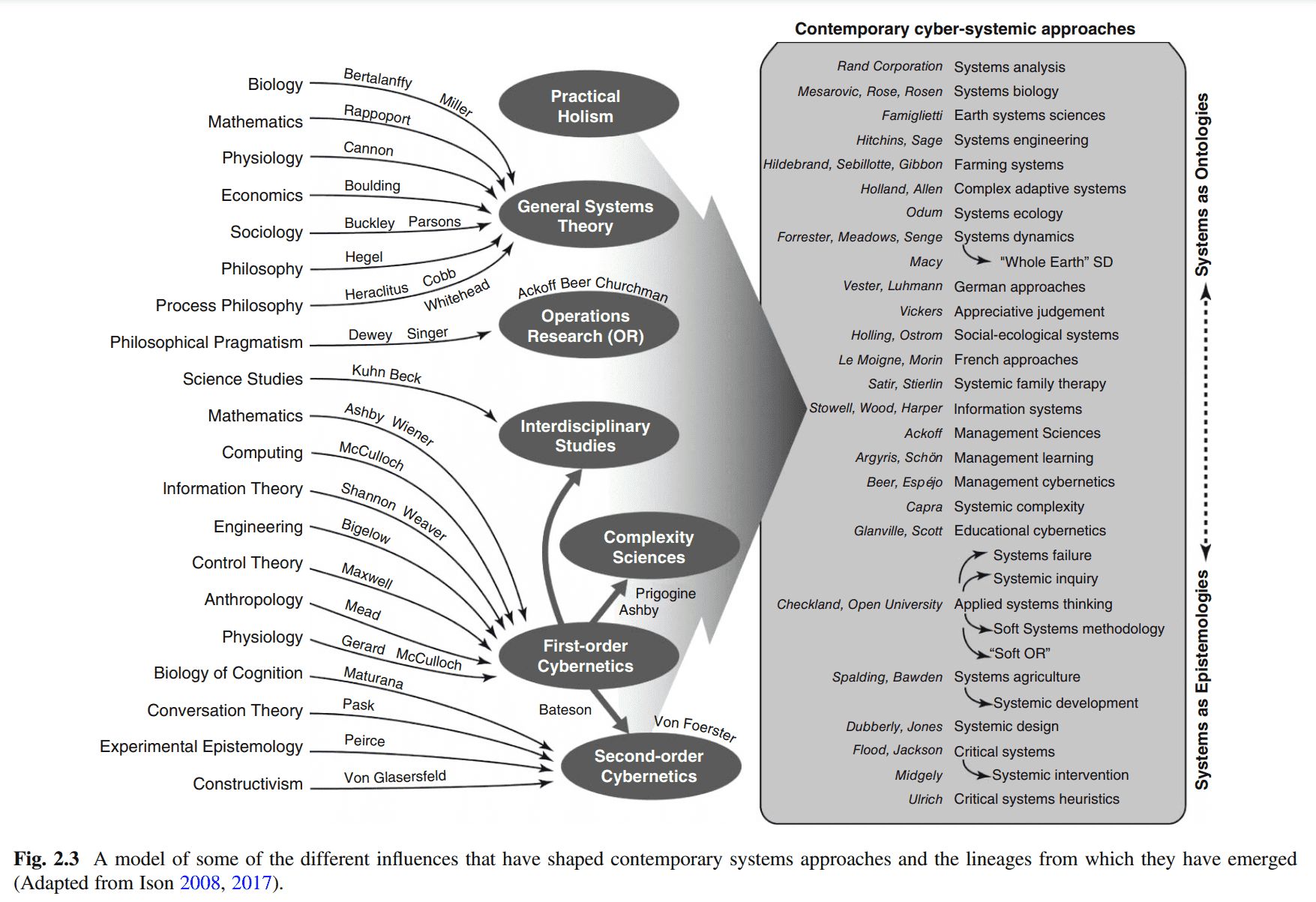TB872: Systems: epistemologies or ontologies?
Note: this is a post reflecting on one of the modules of my MSc in Systems Thinking in Practice. You can see all of the related posts in this category.
As I’ve already written, Ray Ison includes his own ‘systems lineages’ diagram in his book Systems Thinking: How to Act. The version I included in that initial post, while colourful, didn’t include some important information that the greyscale version below does include:

The important part for this post is on the far right hand side where the thinkers in the grey box are put on a spectrum from those who see systems as ‘epistemologies’ to those who see systems as ‘ontologies’.
These terms are familiar to me from my previous studies, but to situate them in terms of this module and course:
Systems as Epistemologies — epistemology refers to what we can know or understand about the world, including how we understand it. If systems are considered as epistemologies, then they are seen as conceptual tools or frameworks of understanding. This helps us construct knowledge and learn, interpret, and engage in the world. An epistemological approach helps us understand that how a system operates is shaped by our beliefs and perceptions, as well as the methods we use to acquire information.
Systems as Ontologies — ontology refers to the nature of being or the structure of ‘reality’. As I mentioned in a previous post about ‘projectification’, seeing systems as ontologies means that they are considered to be ‘real’ entities or phenomena that exist in the world. That is to say they are independent of our understanding or perception. An ontological approach assumes that reality is structured, and therefore can be modeled, analysed, and understood through study and observation.
As you can probably tell by the way that I wrote the above, I seem systems more as epistemologies than ontologies. That puts me more in alignment with thinkers towards the bottom of the grey box (Ulrich, Midgely) than the top (RAND Corporation, Mesarovic).
In practice, as STiP practitioners we probably need to move between these perspectives to help our approaches to problem-solving, decision-making, and the strategies we employ for managing change.

